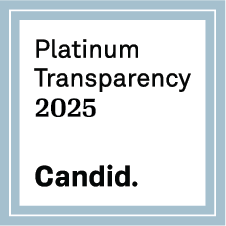Immunize El Paso’s Outreach to Vulnerable Communities
- ProAction

- Jun 18, 2024
- 2 min read
Immunize El Paso has always been at the forefront of public health initiatives, striving to ensure that every resident has access to essential immunizations. One of the most remarkable aspects of their work is their dedication to reaching underserved and vulnerable communities through targeted outreach programs. These efforts have been instrumental in increasing vaccination rates and promoting health equity across the region.
In 2021, Immunize El Paso launched an ambitious outreach project aimed at increasing vaccination rates in El Paso County’s most underserved areas. The program specifically targeted low-income neighborhoods, colonias, and communities of color, where vaccination rates were significantly below the county average. By embedding themselves in these communities, Immunize El Paso's team made a tangible difference in public health outcomes.
One heartening story from this outreach effort is that of the residents of Montana Vista, a rural area on the outskirts of El Paso. Many residents here are migrant farmworkers and recent immigrants who face numerous barriers to healthcare, including language, transportation, and financial constraints. Immunize El Paso’s outreach team set up mobile clinics and educational events directly in the community, providing not only vaccinations but also crucial health information in Spanish.
The impact of these efforts was profound. Over the course of the project, Immunize El Paso increased the vaccination rate in El Paso’s Black community by 10% and in the Asian community by 8%. Overall, the project contributed to a 4% increase in COVID-19 vaccination rates across El Paso County. These numbers reflect the program’s success in overcoming significant barriers to healthcare access and ensuring that vulnerable populations received the protection they needed.
One of the key strategies in this outreach was the use of trusted messengers. School districts, local leaders, and community advocates played a crucial role in spreading the word and encouraging participation. By leveraging these relationships, Immunize El Paso was able to build trust and ensure higher turnout at their vaccination events.
An example of the program's success can be seen in the partnership with local schools. Immunize El Paso worked with every school district in the region, setting up vaccination clinics at nearly 220 campuses. This approach ensured that children and their families had easy access to vaccinations, particularly in areas where healthcare facilities are scarce. The convenience and familiarity of school-based clinics helped to significantly boost participation.
In addition to schools, the outreach team visited religious institutions, community centers, and other local gathering places. They conducted one-on-one conversations with vaccine-hesitant individuals, providing culturally and linguistically appropriate information. This grassroots approach proved highly effective, with many residents opting to get vaccinated after speaking with a trusted community member.
For more information about Immunize El Paso’s outreach programs or to find out how you can support their efforts, please visit www.immunizeelpaso.org or call 915-533-3414. By sharing these impactful stories and impressive statistics, we can inspire greater community involvement and support for initiatives that promote health equity and access to care.





Comments